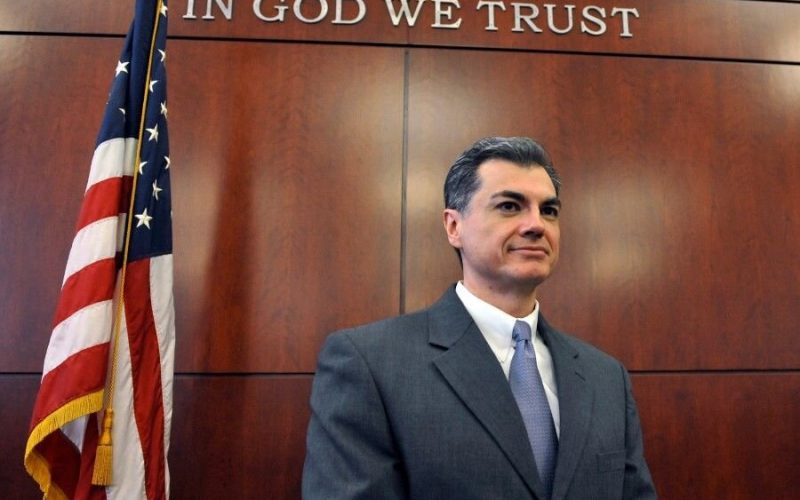New York Supreme Court Justice Juan Merchan warned former President Donald Trump that he could potentially lose access to juror names for his forthcoming trial if he persists in discussing the case in a manner deemed by the judge as posing a “risk” to court proceedings.
“Defendant is hereby put on notice that he will forfeit any statutory right he may have to access jury names if he engages in any conduct that threatens the safety and integrity of the jury or the jury selection process,” the judge warned in his April 1 order expanding an existing gag order.
The Manhattan District Attorney is pressing charges against the former president on 34 counts of falsifying business records. The allegations suggest a scheme aimed at influencing the 2016 elections through payments intended to suppress negative news stories.
Michael Cohen, once President Trump’s personal attorney, publicly admitted to making such payments to silence claims of an affair involving an adult film star. This revelation sparked an investigation into the matter.
Prosecutors asked for a gag order, which the judge approved on March 26. They had also previously sought to keep the names of jurors hidden from President Trump, but the judge had postponed making a ruling on that motion.
Following President Trump’s social media criticism of the judge and mentioning his daughter last week, tensions escalated between the parties, prompting the judge to expand his gag order.
President Trump revived claims of the judge’s bias and pointed out that his daughter, who heads a political marketing firm, has worked for his political adversaries, earning millions from them. This led to concerns about her potential partisan involvement in the case.
In his ruling on April 1, the judge specified that the initial gag order did not apply to the district attorney or the judge. Federal courts have determined that it would be unconstitutional to prevent defendants from discussing the court or the judge overseeing their case, and all three gag orders on President Trump have followed this legal precedent.
However, the judge has now ruled that family members of both the judge and the district attorney will also fall under the gag order. The judge determined that President Trump’s remarks “injects fear in those assigned or called to participate in the proceedings that not only they, but their family members as well, as ‘fair game’ for Defendant’s vitriol.”
“The threat is very real,” the judge wrote. He noted that the district attorney’s office has already argued that trial participants have expressed fear “about their own safety and that of their family members should they appear as witnesses against the defendant.”
The judge concluded that the possibility of trial participants, including jurors, being afraid to get involved is no longer just a theoretical concern, and this situation “will undoubtedly interfere” the trial proceedings.
“That reality cannot be overstated,” he decided.
Normally, the speech of a defendant is highly protected, “especially when the accused is a public figure,” he noted. However, the “conventional ‘David vs. Goliath’ roles are no longer in play as demonstrated by the singular power Defendant’s words have on countless others.”
The prosecution contended that President Trump’s actions were “deliberate” and aimed at intimidating the judge.
On the other hand, the defense asserted that President Trump’s political statements were essential in the current political environment and only highlighted reasons why the judge should disqualify himself.
The judge deemed the prosecutors’ arguments “compelling” and persuasive, while describing the defense’s arguments as “at best strained and at worst baseless misrepresentations” full of “accusations that are disingenuous and not rational.”
The trial of the former American president is scheduled to commence on April 15 in Manhattan, marking the first criminal trial of its kind in the nation’s history.
President Trump, who has recently attended civil trials in New York, faces a highly anticipated courtroom spectacle with packed audiences comprising curious spectators, media, and tourists.
Originally slated for March 25, the trial faced delays due to a last-minute disclosure of over 100,000 pages to the defense. The judge conducted a hearing on the matter on the scheduled date, reprimanding the defense for attributing the delay to prosecutors.
Despite objections from President Trump, who raised concerns about holding the trial during the election season, the legal proceedings are set to proceed, with the defense’s attempts to delay the trial receiving criticism from the judge.
Share your thoughts by scrolling down to leave a comment.

